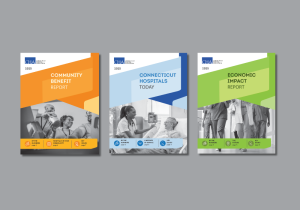Facing global market pressures after placing targeted levies on all imports from other countries, President Trump reversed course on his decision just hours after the “reciprocal” tariffs went into effect this week, announcing a 90-day pause for most nations. However, the president doubled down on Chinese imports, hiking the tax rate to 125%.
Nearly all U.S. trading partners will continue to face the 10% baseline tax that began on Saturday, April 5. Medical supplies and devices are among the goods affected by these levies, including the reciprocal tariffs, if and when reinstated. The tariffs currently don’t apply to pharmaceuticals, but Trump has warned that exclusion is temporary.
While the pause provides a reprieve on products from many countries, costs for medical supplies manufactured in China are expected to surge. China produces medical devices hospitals use every day, including but not limited to blood pressure cuffs, sterile drapes, anesthesia instruments, stethoscope covers, pulse oximeters, and needles and syringes, according to the American Hospital Association (AHA). Most protective gear used in healthcare, such as masks, gloves, and gowns, is also made in China.
Hospitals around the nation are bracing for an imminent uptick in prices. The Connecticut Hospital Association (CHA) has been vocal about the impact of price hikes on hospitals’ and health systems’ financial health.
Higher costs on supplies come at a time when Connecticut hospitals are already facing surging expenses for labor and supplies due to inflation and the lingering impacts of the COVID-19 pandemic, CHA Senior Vice President of Policy Paul Kidwell explained in a recent interview with Hearst Connecticut Media.
The cost of medical supplies alone at Connecticut hospitals rose by 6.8% from fiscal 2022 to 2023, according to an independent report by Kaufman Hall. Drug costs also grew by 10%, adding to a $1 billion increase in operating expenses.
Kidwell also spoke to NBC Connecticut about hospitals’ nationwide efforts to seek exemptions from the tariffs. He stressed the importance of the state supporting hospitals as they weather the storm ahead.
“You’re looking at all of the things that go into providing patient care becoming much more expensive in a short amount of time and hospitals really having to figure out how do we absorb those extra costs while continuing to provide care,” Kidwell explained.
The president has indicated that additional levies on raw materials are likely. Earlier tariffs imposed on steel and aluminum imports will also raise prices on medical supplies, including surgical instruments as well as crutches and prosthetics, according to AHA.
CHA continues to monitor the situation and advocate for hospitals as they prepare to navigate potentially significant challenges.





